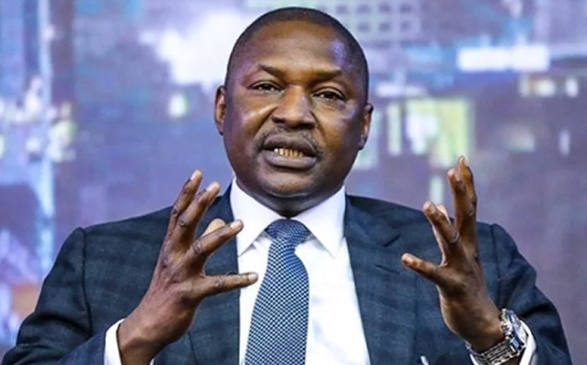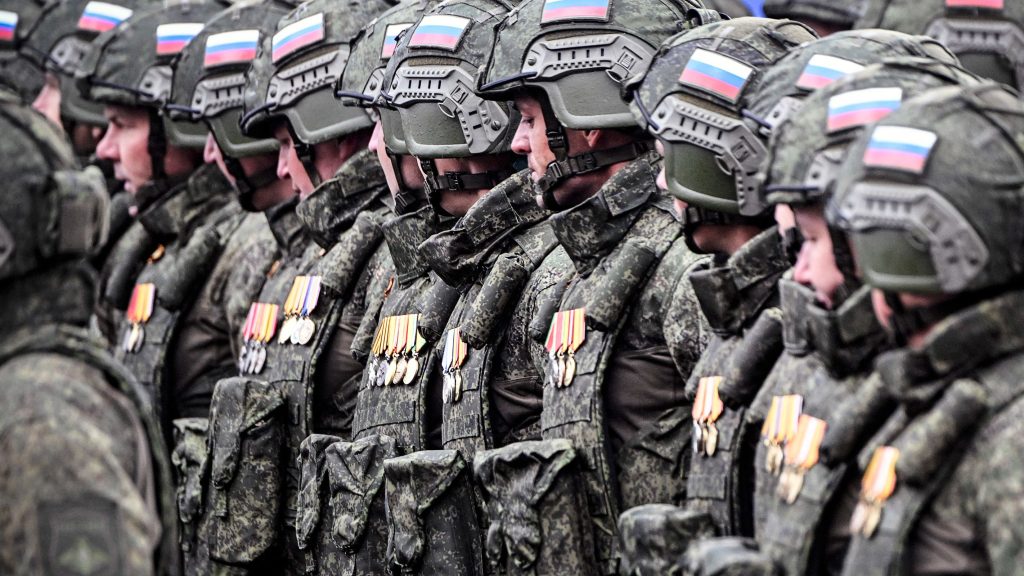Headline
Corruption Cases: Malami Denies Blaming Judiciary For Delay In Trial

The Attorney-General of the Federation and Minister of Justice, Abubakar Malami, has denied blaming the judiciary for delays in the trial of corruption cases in the country.
According to him, the present regime accorded respect to the democratic provisions of the doctrine of separation of powers.
Malami had, in a TV chat on Monday, said the judiciary was responsible for delays in dispensation of justice in the country, especially in trials of corruption cases.
But in his reaction, Chief Justice of Nigeria, Justice Tanko Muhammad, in a statement issued by his Special Assistant (Media), Yusuf Ahurakah Isah, said the judiciary was neither in charge of the investigation nor the political and economic conditions that facilitate speedy disposal of corruption cases.
The CJN accused the Federal Government’s prosecution sector of filing more charges than it could prove or provide witnesses to prove, ostensibly at times for the prosecution to even fail.
According to him, the allegation by Malami was like giving a dog a bad name in order to hang it.
But Malami in a statement issued on Wednesday night by his Special Assistant (Media and Public Relations), Umar Gwandu, said that his comment was construed to evoke an unintended and non-existing inferences “which some mischief makers projected him as blaming the judiciary.”
According to him, the Federal Government recognised the sanctity of the provisions of Sections 4, 5 and 6 of the 1999 Constitution of the Federal Republic of Nigeria that delineate the roles and responsibilities of the executives, legislature and Judiciary.
He said it was on that note that the Federal Government supported the review of Section 121(3) of the Constitution of the Federal Republic of Nigeria to accommodate the provisions for financial autonomy of the state legislature and judiciary.
READ ALSO: 300 Million Litres Of Petrol Arrive To Close Supply Gap, Says FG
Malami explained that the Federal Government also came up with the Executive Order 10 to enforce the provision of autonomy of State Legislature and Judiciary.
The AGF stressed that it was on record that the present administration has a record of non-interference with or meddling into the affairs of the legislature and judiciary.
“It was within the context of this quality and feature of non-interference by the Buhari-led Federal government and for the avoidance of sub-judice that the Minister responded that high-profile cases were presented by the Federal Government for prosecution and the government came out with initiatives in its efforts to support speedy determination of justice.
“It was an innocent statement aimed at showing an re-enactment of a tripartite division of powers and responsibilities among the Executive, Legislature and Judiciary,” he said.
Malami said this position was consistent with the decision of the Court of Appeal in Hon. Abdullahi Maccido Ahmad v. Sokoto State House of Assembly & Anor, (2002) 44 WRN 52 where the Court Per Salami JCA held inter alia that;
“The doctrine of separation of powers has three implications: One is that, the same person should not be part of more than one of the arms or division of government;
“Secondly, one branch should not dominate or control another arm. This is particularly important in the relationship between (the) executive and the courts;
“That one branch should not attempt to exercise the function of the other.”
The Minister said in view of the crucial role of the judiciary as an essential element of democratic system, the federal government gives attention to the budgetary provisions of the Judiciary in addition to welfare-packages meant to enhance their operations.
PUNCH
Headline
Insecurity: US Congressman Riley Moore Reveals Trump’s Mission In Nigeria

US Congressman Riley Moore has dismissed insinuations that President Donald Trump is attempting to bring war to Nigeria.
Moore made the remark in a post on his verified X handle on Monday.
His comments followed a US military airstrike on a terrorist enclave in north-west Nigeria on Christmas Day, reportedly carried out on the directive of President Trump.
“President Trump is not trying to bring war to Nigeria, he’s bringing peace and security to Nigeria and to the thousands of Christians who face horrific violence and death.
READ ALSO:Russia Calls up 135,000 Military Personnel
“The strikes against ISIS on Christmas, in coordination with the Nigerian government, have given hope to the Christians in Nigeria,” he said.
Recall that the lawmaker had previously stated that President Trump is focused on ending the killing of Christians in Nigeria.
It will be recalled that Moore led a US delegation on a fact-finding mission into alleged Christian genocide in Nigeria some weeks ago.
During his brief stay in the country, Moore travelled to Benue State, where he interfaced with religious and traditional leaders, as well as internally displaced persons.
Headline
Russia Calls up 135,000 Military Personnel

Russia has enlisted 135,000 conscripts for military service in 2026, following the conclusion of the autumn army draft by the Defense Ministry.
A statement on Monday said most personnel have been assigned to training units and military formations where they will “get a military specialty and learn to operate modern military hardware.”
The conscripts can choose to serve in any of the various military branches and armed services after an assessment of their health condition and the results of psychological examinations.
READ ALSO:Russian Strike On Odesa Region Kills Eight, Injures 27
The ministry disclosed that 680 recruits have joined scientific and research-production units, while 240 from the country’s national teams in Olympic disciplines joined sports companies.
However, military personnel who have served the established term of military service have been discharged and sent to their places of residence.
The latest enlistment confirms Russia is shoring up its troops deployed to the ongoing special military operation in Ukraine ahead of the new year.
READ ALSO:Putin Says Russia Ready For War, Blames Europe For Sabotaging Peace
A fortnight ago, European leaders reaffirmed their pledge to form a multinational force–under the aegis of the Coalition of the Willing–to assist Ukraine in securing land, skies, and seas.
The pledge is one of the six commitments the EU and heads of state developed for Ukraine’s security and economic recovery support measures.
In an interview with TASS on Sunday, Russian Foreign Minister Sergey Lavrov condemned Europe’s insistence on sending military forces to Ukraine.
“We have said many times that our Armed Forces would view them as a legitimate target,” he said, warning that anyone who attacks Russia would face “a devastating blow.”
Headline
How Our Airstrikes Stopped Christmas Attacks In Nigeria — US Lawmaker

Riley Moore, a member of the United States House of Representatives from West Virginia’s 2nd District, has linked the absence of Christmas attacks in Nigeria this year to US military airstrikes carried out against Islamist militants on Christmas Day.
In a post on his official X account on Saturday, Moore contrasted the situation with the past two Christmas seasons, during which he claimed Christians were killed in attacks across parts of Nigeria.
The lawmaker noted that this year’s response targeted extremist groups instead of marking another period of violence.
READ ALSO:Rep Moore Confirms 12 Tomahawk Missiles Launched In Sokoto
He added that US forces acted decisively against militants in coordination with the Nigerian government.
“For the past two Christmases, Christians have been murdered in Nigeria. This year, thanks to @POTUS, Radical Islamic Terrorists were on the receiving end of 12 Tomahawk missiles as a present.
“The successful strikes on ISIS, in coordination with the Nigerian government, are just the first step to secure the country and end the slaughter of our brothers and sisters in Christ,” Moore wrote.
US President Donald Trump said on Thursday that American forces had conducted deadly strikes against Islamic State terrorists in north-western Nigeria.
Trump, who spoke via his Truth Social platform, warned that more attacks would follow if the militants continued killing Christians, adding that the Department of War executed numerous “perfect strikes.”

 Headline4 days ago
Headline4 days agoJUST IN: US Forces Bomb Terrorists Camps In Nigeria

 News5 days ago
News5 days agoOkpebholo Slams ₦25bn Libel Suit On Edo PDP Chairman

 Headline4 days ago
Headline4 days agoUS Dept Of War Shares Video Of Air Strikes In Nigeria

 News4 days ago
News4 days agoPHOTOS: SGF George Akume Weds Ooni’s Ex-Queen

 News1 day ago
News1 day agoBREAKING: Anthony Joshua Involved In Road Accident

 News4 days ago
News4 days agoTrump’s Airstrikes: Halt Military Cooperation With US Immediately – Sheikh Gumi Tells Tinubu Govt

 News2 days ago
News2 days agoEx-Edo Gov Obaseki Reacts As His Cousin Is Beaten, Stripped

 News4 days ago
News4 days agoShehu Sani Reacts To Trump’s Military Strikes In Nigeria

 Headline4 days ago
Headline4 days agoU.S. Lawmaker Reacts To Nigeria, U.S. Airstrikes

 News5 days ago
News5 days agoYULETIDE: UBTH CMD Charges Nigerians To Be Hopeful In Coming Year


























